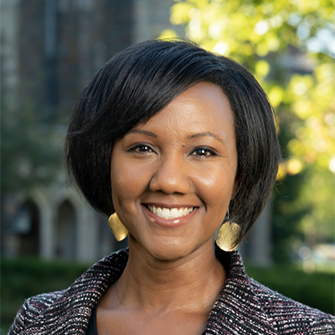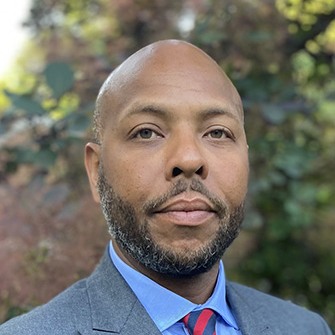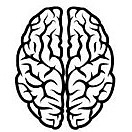Upcoming Events
-
Apr192:00pm - 3:30pm
Social & Cognitive Science Brown Bag Seminar Series: Vivienne Chi
Metcalf Research Building, Rm 305More InformationSpeaker: Vivienne Chi, Brown University
Title: Human-Robot Trust during Interactive Teaching
Abstract: Building and maintaining trust is critically important for continued human-robot interaction and the prospect of robots learning social skills from social environments. While prior work explored ways for artificial agents to learn norms from human users, a psychological analysis of the human teacher has been largely overlooked. To gain insight into how humans would teach robots to master social and moral norms and update their trust, I will present a novel paradigm in which participants interactively teach a simulated robot to behave appropriately in a healthcare setting. In this talk, I will show that human teachers are highly responsive to the robot’s local and cumulative performance. I will discuss my efforts to measure trust dynamics as teaching and learning progress and to examine how human teachers’ choice of teaching method and their perceived contribution to the robot’s learning play a role in these trust dynamics.
-
Apr224:30pm - 5:30pm
Turning Your PhD into a Job Series: Acing an Interview
167 Angell Street, Rm 1st Floor Conference RoomMore Information Careers, Recruiting, InternshipsDuring this workshop, we will focus on how to prepare for your next interview.
This includes:
- General rules of an interview and how to prepare for it
- Common interview questions and the frameworks to structure your thoughts and answers
- Tips on how to answer the tough questions (with examples)
- Resources for preparation and practice
This program is open to all Brown PhD students and Postdocs.
-
Apr232:00pm - 3:00pm
CCBS Special Seminar: Data-driven modeling and analysis to understand individuality and variation in multi-scale brain dynamics
164 Angell Street, Rm Carney Innovation Zone, 4th floorMore Information CCBS, Mathematics, Technology, Engineering, ResearchShiNung Ching,Associate Professor Electrical & Systems Engineering,
Washington University in St. LouisA fundamental challenge in computational neuroscience has been the translation of multimodal data into formal mathematical and computational models that can reveal biophysical mechanisms in neural circuits and their connection to behavior. In this presentation, I will describe our recent efforts in this domain, focusing on extracting from data the generative dynamics that give rise to overt observations of brain activity. Specifically, I will describe how we have adapted tools from Bayesian filtering and algorithmic optimization toward the problem of parametrically learning high-dimensional, biophysically interpretable models of network interactions involving hundreds to thousands of neural populations. These techniques place a particular emphasis on model-building at the level of individuals, which in turn provides leverage on revealing idiosyncrasies in brain mechanisms. In this regard, I will highlight two ways in which we are leveraging the obtained models. First, I will discuss our newly developed methods to directly interrogate the intrinsic dynamics within models, toward assessing topological similarity across individual (brain) dynamics and the functional salience thereof. Second, I will describe how we are using models to predict input-output relationships within brain networks and their responses to exogenous, causal perturbations. In addition to basic mechanistic insights, these approaches enable us to design brain stimulation protocols that are tailored to individuals and defined in terms of dynamical targets that can be linked to specific functional endpoints; to conclude I will briefly describe ongoing work to validate this latter premise.
-
Apr23More Information CCBS, Graduate School, Postgraduate Education, Psychology & Cognitive Sciences, Research
Join us for our weekly interdepartmental journal club to discuss recent work in cognitive, computational, and systems neuroscience. For more info, contact Kati Conen ([email protected])
-
Apr234:00pm
Neuroscience Special Seminar - Opposing Roles of VTA Co-Transmitters in Reward and Aversion
Biomedical Center (BMC), Rm 202, Purple PalaceMore InformationOpposing Roles of VTA Co-Transmitters in Reward and Aversion
Shelley Warlow
University of California, San DiegoThe ventral tegmental area (VTA) controls motivation most notably through its dense dopaminergic projections to various limbic and forebrain sites. However, the VTA is heterogeneous and some VTA neurons have the surprising capacity to co-release multiple neurotransmitters when activated. For example, a subset of VTA glutamate neurons co-release dopamine in the nucleus accumbens medial shell (NAc), and a separate subset co-release GABA in sites such as lateral habenula (LHb) and ventral pallidum. Optogenetic stimulation of VTA glutamate projections promotes positive reinforcement in mice in some assays, yet in other assays can promote aversion, making it difficult to reconcile how the same neurons can promote opposing motivations. Here, I present findings from experiments that dissect the distinct contribution that individual co-transmitters from VTA glutamate neurons make to reinforcement and avoidance behaviors. Overall, our results suggest that distinct neurotransmitters co-released from VTA contribute to motivation in an opposing manner, and highlight mesolimbic contributions to reinforcement that are dopamine-independent.
-
Apr245:00pm - 6:00pm
BioCON Presents: Bioimaging careers and microscopy as a common thread
164 Angell Street, Rm Innovation ZoneSign UpMore Information Biology, Medicine, Public Health, Mathematics, Technology, Engineering, ResearchBioimaging careers and microscopy as a common thread
Dr. Lylah Deady, Ph.D.
Biosystems Sales Specialist / Account Manage at Nikon Instruments
BioCON is excited to welcome Dr. Lylah Deady who will be joining us in person at Brown University! Dr. Lylah Deady is a Biosystems Sales Specialist and Account Manager at Nikon Instruments. She will come and discuss her experiences of working for a global microscope company and broadly speak about opportunities for bioimaging careers post-Ph.D.
This event will be catered by Poke Works!
-
Apr2512:00pm
Neuroscience Special Seminar - The Neural Mechanisms and Circuits for Flexible Decision-Making
Biomedical Center (BMC), Rm 202, Purple PalaceMore InformationThe Neural Mechanisms and Circuits for Flexible Decision-Making
NaYoung So
Colombia UniversityA hallmark of cognition lies in the ability to process and combine information in a flexible manner. To identify the mechanisms and circuits underlying this computation, I study the neurobiology of decision-making. Humans and other primates predominantly use vision to gather information, and therefore, I use nonhuman primates as a model for studying the neural correlates of decisions communicated by eye movements. I designed novel tasks that deconstruct the decision process to understand (i) how the decision can be paused and resumed after interruptions and (ii) how the decision can be terminated to be reported later. While the monkey was engaged in these tasks, I recorded tens to hundreds of neurons simultaneously from the parietal cortex. When a decision is interrupted by intervening eye movements and needs to be updated, I demonstrated the population of parietal neurons represents the decision continuously without interruption—by transferring decision-related activity from neuron to neuron across intervening eye movements.
Furthermore, I showed that if the termination of a decision is separate from the expression of the decision, different groups of parietal neurons represent the When and What of the decision. Yet, these representations are correlated on single trials, suggesting the When and What of a decision remain coupled via a single evidence accumulation process. Together, my results reveal the building blocks of the decision process and how these units are put together to guide flexible behavior. Based on my findings, I hypothesize that behavioral flexibility can be explained by the many ways neurons can communicate within and across brain areas to cater to various task demands. My future research will test this hypothesis by probing hundreds of neurons simultaneously from the parietal and frontal areas while the monkey makes decisions under varying task demands:
1. Different information types (i.e., value and sensory).
2. Different rules or contexts.
3. Different ways to gather information.
My research benefits from the latest innovation in neurotechnology for probing neural populations and the set of sophisticated analyses and models to identify neural mechanisms and circuits for decision-making. Through this approach, my research aims to uncover the general principles governing cognition. -
Apr25
-
Apr2612:00pm - 1:00pm
The Center for the Neurobiology of Cells and Circuits Special Seminar: Sam Reiter, Ph.D.
164 Angell Street, Rm Innovation ZoneMore Information Biology, Medicine, Public Health, Carney Conversations, Graduate School, Postgraduate Education, ResearchJoin The Carney Institute for Brain Science as we host The Center for the Neurobiology of Cells and Circuits Special Seminar with Sam Reiter, Ph.D., where he will discuss the Cephalopod skin patterns as windows into brain dynamics.
Dr. Reiter is currently an assistant professor and leader of the computational neuroethology unit at Okinawa Institute of Science and Technology. His background is in experimental neuroscience, where he has studied diverse topics in a range of model organisms. After studying neuroscience at Brown University, he continued graduate school in neuroscience at Brown and the US. National Institutes of Health, and most recently worked as a postdoc at the Max Planck Institute for Brain Research.
-
Apr262:00pm - 3:30pm
Social & Cognitive Science Brown Bag Seminar Series: Linda Zou
Metcalf Research Building, Rm 305More InformationSpeaker: Linda Zou, University of Maryland
Title:
Abstract:
-
Apr263:00pm - 4:30pm
A Carney Career Conversation with Sam Reiter, Ph.D.
164 Angell Street, Rm Innovation Zone, 4th floorMore Information Biology, Medicine, Public Health, Carney Conversations, Graduate School, Postgraduate Education, ResearchJoin the Carney Institute for Brain Science for a Career Conversation with Sam Reiter, Ph.D., as he shares his personal academic journey and career trajectory. The event will be followed by a discussion and Q&A session, moderated by Kristin Webster, the Carney Institute’s Associate Director for Training and Development.
Dr. Reiter will also be presenting a Center for the Neurobiology of Cells and Circuits Special Seminar discussing the Cephalopod skin patterns as windows into brain dynamics on April 26 at 12:00 p.m. in the Carney Innovation Zone.
Sam Reiter is currently an assistant professor and leader of the Computational Neuroethology Unit at Okinawa Institute of Science and Technology. His background is in experimental neuroscience, where he has studied diverse topics in a range of model organisms. After studying neuroscience at Brown University as an undergraduate, he continued graduate school in neuroscience at Brown and the US National Institutes of Health and trained as a postdoc at the Max Planck Institute for Brain Research.
Please RSVP by April 24 and reach out to [email protected] with any questions.
-
Apr29Virtual and In Person12:00pm - 1:00pm
Fluid Biomarkers Laboratory Lunch & Learn Seminar:“Blood? Brain? No Barriers: applications of MSD’s ultrasensitive immunoassays for neuroscience research”
Sidney Frank Hall, Marcuvitz Auditorium, Rm 220More Information ALZ, Biology, Medicine, Public Health, CTN, Graduate School, Postgraduate Education, Physical & Earth Sciences, Psychology & Cognitive Sciences, ResearchBrown University’s Fluid Biomarkers Laboratory & Meso Scale Discovery invite you to join us for a lunch and learn to explore:
MSD Solutions for:
- Personalized Multiplexing
- Ultrasensitive Detection
- Assay Development
Focus: Biomarker detection in blood, CSF, exosomes, + extracellular vesicles (EVs)
-
Apr2912:00pm - 1:30pm
Developmental Brown Bag Seminar Series: Justin Parent
Metcalf Research Building, Rm 305More InformationSpeaker: Justin Parent, Brown/URI
Title:
Abstract:
-
Apr30More Information
John Mislow Memorial Lecture
Stanislas Dehaene, Professor, Collège de France
“Understanding the neural code for conscious symbolic thought:
A challenge for human cognitive neuroscience”Tuesday, April 30, 2024 | 4:00 p.m.
Reception to follow
-
May1More Information Biology, Medicine, Public Health, Psychology & Cognitive Sciences, Social Sciences
Clinical Psychology Training Programs at Brown: A Consortium of the Providence VA Medical Center, Lifespan,
and Care New England
Cultural Adaptation of Evidence-Based Interventions
Melanie M. Domenech Rodríguez, PhD, ABPP
Department of Psychology
Utah State UniversityWednesday, May 1, 2024◊ 11:00 am - 12:30 pm
• PRE-REGISTRATION REQUIRED: https://cme-learning.brown.edu/DPHB-23-24
Objectives: At the conclusion of this presentation, participants should be better able to:
• Define cultural adaptation
• Differentiate cultural adaptation from cultural competence
• Identify multiple models of cultural adaptation
• Explain the effects of cultural adaptation on treatment outcomes
• Describe specific examples of cultural adaptationsFinancial Relationship Disclosure: Dr. Domenech has no financial relationships to disclose.
-
May15:00pm - 6:30pm
BioCON Intro Into Networking Social
164 Angell Street, Rm Innovation Zone, 4th floorRSVPMore Information Biology, Medicine, Public Health, Graduate School, Postgraduate EducationThis is an Intro Into Networking Workshop and Social Event for Graduate Students and Postdocs in biology-related fields.
-
May2More Information
Speaker: Miranda Scolari (Texas Tech University)
Title: TBA
Abstract: TBA
-
May22:00pm - 3:30pm
Empowering Career Growth and Professional Resilience Through Strategic Networking
Carney Institute for Brain Science (164 Angell Street, 4th Floor, Providence, RI 02906), Rm Innovation ZoneRegister to AttendMore Information“Empowering Career Growth and Professional Resilience Through Strategic Networking” is a workshop facilitated by Mari Anne Snow, CEO/Founder, Sophaya and the Remote Nation Institute (RNI) and Dr. Katherine M. Sharkey, Associate Professor, Departments of Medicine and Psychiatry & Human Behavior and Associate Dean for Gender Equity, The Warren Alpert Medical School of Brown University. In this interactive, open discussion forum, participants will examine the nature of career paths in today’s workplace and examine new techniques for building professional networks to foster resilience and lifelong professional meaning and relevance. After completing this session, participants will leave with:
- A pragmatic understanding of the workplace today.
- Novel approaches for cultivating and maintaining a vibrant and supportive network.
- Techniques for building a meaningful career life.
- Concrete action steps to create forward momentum.
This event will take place in person on Thursday, May 2, 2024, from 2:00 PM to 3:30 PM at the Innovation Zone inside the Carney Institute for Brain Science (164 Angell Street, 4th Floor, Providence, RI 02906).
Light refreshments will be provided, and the event will last about 90 minutes.
The Carney Institute’s Advancing Research Careers (ARC) program aims to advance the research careers of women and persons historically excluded due to ethnicity and race (PEERs) in brain sciences at the level of advanced postdoctoral scholars and junior faculty. ARC is funded by an R25 award from NINDS to support an annual cohort of highly qualified participants through structured mentorship, research support, and activities that contribute to successful neuroscience research careers
Target Audience: This event is designed for early career scholars, including Carney ARC scholars, senior postdoctoral scholars at Brown, and junior faculty members at Brown who have recently transitioned from postdoctoral appointments.
Registration is required.
Questions? Please email [email protected]
Mari Anne Snow, CEO, Sophaya and the Remote Nation Institute: With over 20+ years’ experience leading remote teams, Mari Anne is a recognized remote work thought leader. Her company, Sophaya, helps organizations optimize remote work programs and her Remote Nation Institute is re-writing leadership best practices and standardizing remote work business training to educate today’s remote/distributed professionals. Her book, The Remote Work Handbook, provides practical, real-world advice for achieving success with remote/distributed teams.
Katie Sharkey, MD, PhD: As director of the Office of Women in Medicine and Science in the Division of Biology and Medicine, Katie develops programming aimed at fostering academic achievement and professional development of women faculty, house officers, students, and trainees. She chaired the Mentoring Committee of the American Medical Women’s Association (AMWA) from 2019-2023 and now represents AMWA on the steering committee of the Women’s Wellness through Equity and Leadership (WEL) leadership training program. Katie is also a past chair of the American Academy of Sleep Medicine (AASM) Young Investigator Research Forum, which aims to position early-career investigators for a successful research career.
-
May32:00pm - 3:30pm
Social & Cognitive Science Brown Bag Seminar Series: Semir Tatlidil
Metcalf Research Building, Rm 305More InformationSpeaker: Semir Tatlidil, Brown University
Title: TBA
Abstract: TBA -
May411:00am - 1:00pm
PhD Career Beyond Academia Series: Career Journey as an International Student
167 Angell Street, Rm 1st Floor Conference RoomMore Information Careers, Recruiting, InternshipsJoin us to meet our exceptional Brown international PhD alumni who are currently excelling in various industries!
At this in-person event, you will:
- Explore different career options that are available for international PhD students
- Hear alumni’s stories of career transition from academia to industries and the challenges that international students may face during the process
- Learn more about the skills you can gain at Brown for different types of careers
Our Ph.D. alumni speakers are:
- Jiuyang (Joey) Bai, PhD in Cognitive Science, Senior Machine Learning Engineer at CVS Health
- Isabella Gama, PhD in Earth, Environmental and Planetary Sciences, Associate at McKinsey & Company
- Youngmin Lee, PhD in Chemistry, Patent Agent at Cantor Colburn LLP
- Asli Sahin, PhD in Molecular Biology, Cell Biology and Biochemistry, Director of Search and Evaluation Neuroscience at Abbvie
- Shubham Sharma, PhD in Chemical Engineering, Senior Scientist at Pfizer
-
May8More Information Biology, Medicine, Public Health, Mathematics, Technology, Engineering, Research
We are pleased to invite you to a virtual workshop on the Human Neocortical Neurosolver (HNN), jointly organized by the Stephanie Jones Lab and MetaCell, scheduled for May 8th. The workshop is aimed at researchers and clinicians with an interest in neuroscience but without formal computational modeling or coding experience. It will offer a detailed exploration of HNN, a tool designed to interpret the neural origins of human MEG/EEG data.
Workshop Highlights:
- Comprehensive Overview: The workshop will begin with a didactic presentation on the background and development of HNN, providing a foundation for its application in neuroscience research.
- Practical Application: Participants will learn how to utilize the HNN graphical user interface (GUI) to investigate the circuit origins of commonly measured signals, including event-related potentials (ERPs) and low-frequency brain rhythms.
- Advanced Interface Training: Discover how to use the HNN-core Python interface.
Workshops Hosts:
- Stephanie Jones, PhD
- Mainak Jas, PhD
- Nicholas Tolley
- Ryan Thorpe
- Dylan Daniels
About the Workshop Content:
MEG/EEG signals are correlated with several healthy and pathological brain functions. However, it is still extremely difficult to infer their underlying cellular and circuit level origins. This limits the translation of MEG/EEG signals into novel principles of information processing, or into new treatment methods for pathologies. To address this limitation, we have built the Human Neocortical Neurosolver (HNN): an open-source software tool to help researchers and clinicians without formal computational modeling or coding experience interpret the neural origin of their human MEG/EEG data.
HNN provides a graphical user interface (GUI) and a programmable Python interface to an anatomically and biophysically detailed model of a neocortical circuit, with layer specific thalamocortical and cortical-cortical drives. Tutorials are provided to teach users how to begin to study the cell and circuit level origin of sensory event related potentials (ERPs) and low frequency rhythms in the alpha, beta and gamma band, based on our prior publications.
Unique to HNN is an underlying neural model that accounts for the biophysics generating the primary electric currents underlying EEG/MEG signals, enabling visual and statistical comparison of model output to source localized data from a single brain area (in nAm). Users can change model parameters in the GUI for testing hypotheses on signal differences under varied experimental conditions. Further, visualizations are shown of detailed circuit activity including layer-specific responses, cell spiking activity, and membrane voltages.
We look forward to introducing you to our one-of-a-kind tool for cell and circuit interpretation of MEG/EEG!
Registration Information:
The workshop will take place online on Wednesday, May 8th from 9am to noon ET. It is limited to 20 participants to ensure a productive learning environment. Given the specialized nature of this workshop, we anticipate high interest. To secure your participation, we recommend registering as soon as possible. A registration fee of $25.00 is required to help us cover the costs of organizing the event.
-
May8More Information Biology, Medicine, Public Health, Psychology & Cognitive Sciences
Scaling Single Session Interventions to Bridge Gaps in Mental Health Ecosystems
Jessica L. Schleider, Ph.D.
Associate Professor, Departments of Medical Social Sciences, Pediatrics and Psychology
Northwestern University
Wednesday, May 8, 2024◊ 11:00 am - 12:00 pm
• PRE-REGISTRATION REQUIRED: https://cme-learning.brown.edu/2023-2024-Child-Adolescent
Objectives: At the conclusion of this presentation, participants should be better able to:
• Understand the concept of ‘single-session interventions’ (SSIs) for youth mental health
• Describe state-of-the-art research on how, why, and for whom SSIs can reduce mental health problems
• Identify tools and create an implementation plan for using evidence-based SSIs in real-world practice
Financial Relationship Disclosure: Dr. Schleider has the following financial relationships to disclose: Research Funding: Kooth LLC, Founder: Single Session Support Solutions -
May912:00pm - 1:00pm
Perception & Action Seminar Series: Sabine Kastner
Metcalf Research Building, Rm 305More InformationSpeaker: Sabine Kastner (Princeton)
Title: TBA
Abstract: TBA
-
Jun6All Day
Sixth Annual Dr. Samuel M. Nabrit Conference for Early Career Scholars
Marcuvitz Auditorium, Rm SFH220Learn MoreMore Information Biology, Medicine, Public Health, Graduate School, Postgraduate Education, Mathematics, Technology, Engineering, Psychology & Cognitive Sciences, ResearchSixth Annual Dr. Samuel M. Nabrit Conference for Early Career Scholars
June 6-7, 2024
Brown University
Providence, RIThe 2024 Dr. Samuel M. Nabrit Conference for Early Career Scholars (June 6-7) will showcase the research achievements of outstanding molecular life scientists from historically underrepresented groups.
The conference is free and in person, hosted by the Molecular Biology, Cell Biology and Biochemistry Department at Brown University.
Conference Keynote Speakers
Keynote speakers for the conference will be Dr. Sherilynn Black, PhD (Duke University), and Dr. Blanton Tolbert, PhD (University of Pennsylvania).

Sherilynn Black, PhD

Blanton S. Tolbert, PhD
The conference program will open Thursday afternoon June 6 and close Friday evening June 7. It will feature short talks by invited early career scholars, panel events focusing on identity and professional development, and a poster session.
This will be an inclusive event, drawing attendees from the Brown BioMed community (including undergraduate and graduate students, faculty, staff and campus organizations) as well as registered participants from across the US. The conference has been named in honor of Dr. Samuel Milton Nabrit, Brown’s first African-American PhD recipient and a marine biologist with a distinguished international career.
For questions about the 2024 Samuel M. Nabrit Conference for Early Career Scholars, please contact [email protected].
-
Jun13More Information CTN
We hope that you will join us for our annual Spring Retreat on Thursday, June 13th, from 1PM-5PM in LMM 107 at 70 Ship Street. The full schedule will be posted as we get closer to the retreat. Social to follow in the Ship Street Courtyard.
Eric Morrow, MD/PhD, DirectorJudy Liu, MD/PhD, Associate Director



